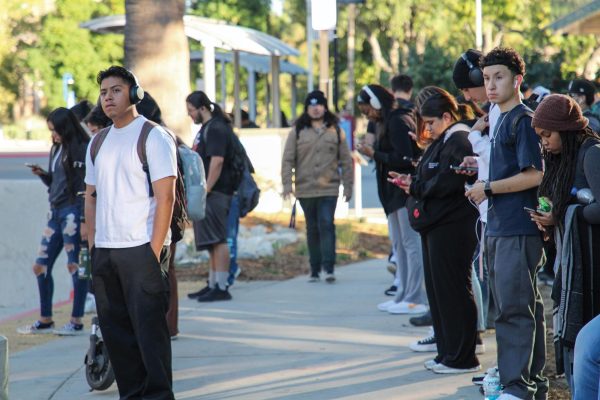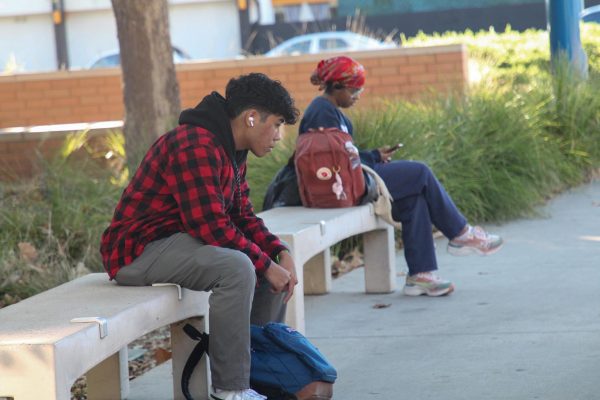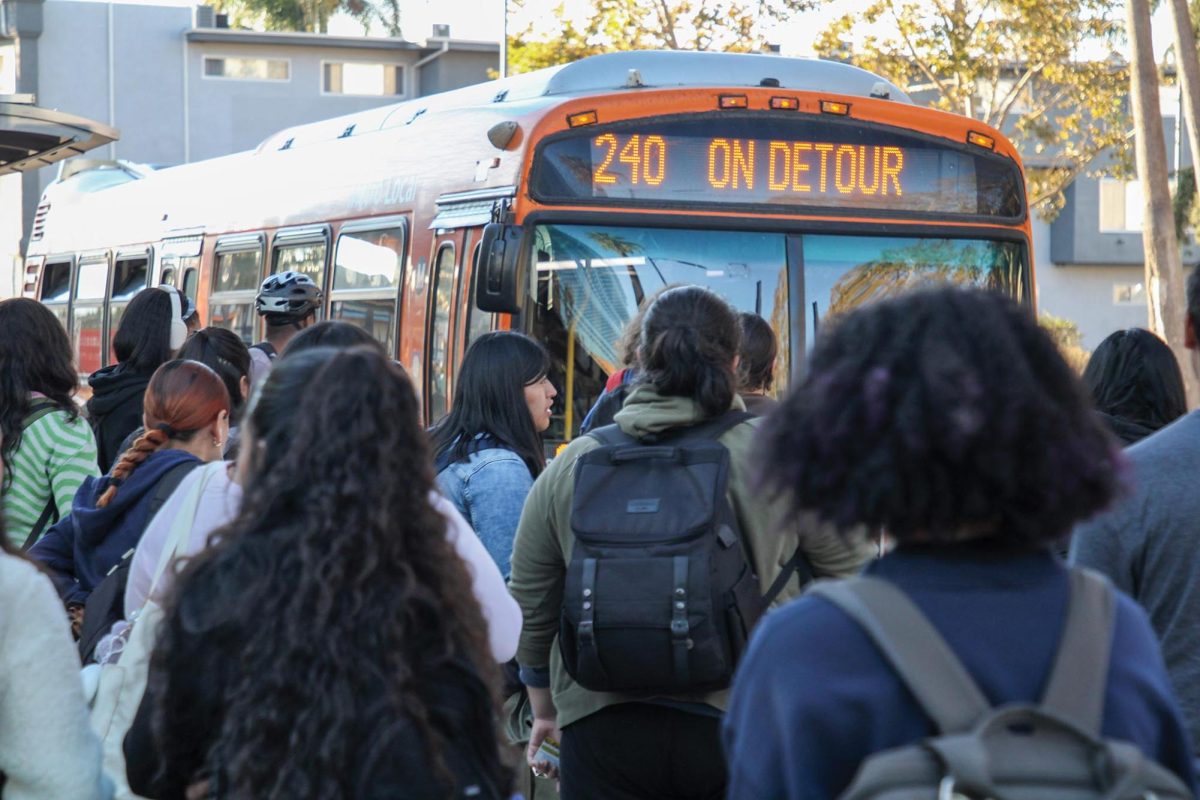Being one of the most commuter-accessible universities, with a percentage of 51% commuter students in 2019, a large portion of the California State University, Northridge, student population relies on public transportation to commute to campus.
CSUN has a variety of options for commuter students, such as paid ride-share programs, Metro transit agencies, and their own transit shuttles.
Due to recent changes in Metro lines, many commuter students’ public transportation routes have been affected. Students have had to adjust to alternative routes, which add more time to commutes, especially for students commuting from outside the San Fernando Valley.
On average, CSUN students who live in and around Los Angeles who commute using public transportation take about two hours to arrive in Northridge.
“I used to drive back and forth from Orange County to CSUN. It was a two-hour drive there and two to three hours back. It was very exhausting and at one point I was losing hair because of the stress,” wrote Angelina Tran, a third-year student, in a survey conducted by The Daily Sundial.
LA Metro is currently working to improve their commuter experience and create a more sustainable method of transportation. Their hope is that these changes will bring new riders to Metro to achieve pre-pandemic levels of weekly ridership.

Most notably, Metro has begun a shift into using electric buses on their G line that goes through the San Fernando Valley. Metro also extended their D and E lines to cover areas of Los Angeles such as Westwood and Santa Monica for easier transit access.
“These service updates will also help our revamped NextGen bus system live up to its potential by offering more frequent and convenient bus services for many riders,” Metro said in a statement released in Dec. 2022. “That means riders will spend less time on their commutes and give them back precious time for everything else in their lives.”
Additionally, Metrolink, Southern California’s commuter rail system agency, implemented a “Student Adventure Pass” that now allows students to ride on Metrolink trains all around Southern California for free. This not only cuts costs, but for many students like Tran, the pass can cut the commute time significantly from cities outside of Los Angeles County, making the travel less taxing than with a car.
To provide another resource for commuter students, CSUN’s partnership with the U-Pass program takes the burden of Metro’s daily pricing off college students with a discounted transit pass, covering the majority of Southern California. It is $95 per semester, allowing unlimited daily rides on buses, trains, Metro micro, and shuttles.
However, some students still feel the price of the U-Pass is excessive compared to the free GoPass that community college students receive.
“The community college I went to had free bus passes. That was one of my favorite things there, and I wish CSUN did that too, especially considering how many buses I take a week and how many students that do take public transportation, or would if it were free,” said Elliot Moorvitch, a third-year anthropology major.
Even though CSUN’s commuter status has progressively dropped since the pandemic, the school encourages students to use alternate forms of transportation available to them to travel more sustainably.
CSUN’s sustainability department collaborates with the university to create sustainability goals every year. In 2023, CSUN planned to increase the share of alternatives to single-occupancy vehicles for commuting from 26% to 40%, as well as reduce vehicle use on campus to eventually eliminate usage altogether.

While CSUN plans to convert the university to a more environmentally friendly institution and push public transportation, students feel the university does not understand the limitations of public transportation.
“I can’t do clubs, can’t really stay after class to chat with professors or classmates. I can’t really meet anyone. [I am] pretty constrained to my schedule. I have a class that ends at 9:30 p.m. and won’t get back home till 12 a.m.,” said Saul Quintero, a fourth-year media theory and criticism major.
While CSUN provides a variety of ride-share options, providing options for discounts and offering more consistent hours on the Chatsworth station shuttle could take a lot of the burden off students who rely on ride-shares for easier access around Northridge.
In order to create more environmentally friendly habits in universities in and around Los Angeles County, institutions could collaborate with the Metro agency to cater to the needs of college students in the same way the agency has done with Los Angeles Unified School District for K-12 schools.
Solutions for the many trials and tribulations of CSUN commuters would take a lot of time to implement. Despite the limited number of options for students to express their opinions on campus, there is a platform for commuter students to make their voices heard through the Metro’s service council meetings. Individuals are allowed to express concerns at the monthly meetings held in the San Fernando Valley and four other Southern California regions. The commuter experience is ever-changing, and speaking up to ensure our public transportation systems can reflect that would help pave the way for a more sustainable and reliable future of transportation.



